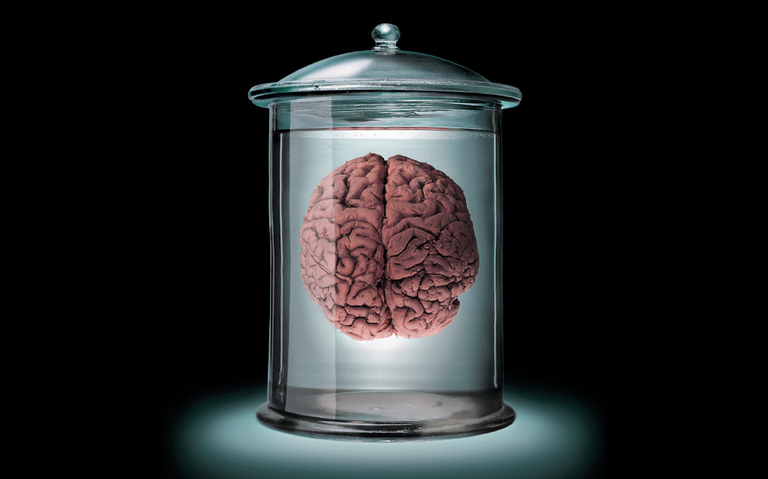
It's common knowledge that you get smarter as you mature, reaching a point of maximum acuteness/wisdom somewhere in middle age, then your faculties weaken as you progress toward old age. Not for everyone, of course, a few people stay sharp until the end, but for most, to age is to diminish. What differences there are in people—between preserved faculty and diminished faculty—used to be explained by the genetic lottery.
Biologically speaking, ageing is allied to a continuous loss of function in cognition, sensation, memory, and motor control. That functional loss of brain power is something we have a model for; loss of bodily function. Physically our bones calcify and our muscles atrophy; our senses become less sensitive with wear and tear. Because of that parallel decline of the body (which is unavoidable—no one escapes the ravages of physical ageing), it was always assumed that neurological decline was unavoidable too, a direct consequence of brain machinery "wearing out". But this view has been challenged in recent years in light of research in neuroscience, psychology, and related fields.
The brain-weakening process is governed by four known factors, and the good news is they can each be manipulated. They are (in technical language): reduced schedules of brain activity; noisy processing; weakened neuromodulatory control; and negative learning. Let me explain those terms:
Reduced schedule of brain activity: the number and difficulty of tasks you set your brain is called its 'schedule'. The tendency as you age is to rest on your laurels. You know all you need to know so there's no need to learn a new skill or engage in other learning activities. You effectively reduce the brain activity schedule.
Noisy processing: this is poor signal quality of sensory inputs. A deteriorating brain produces low fidelity representations of the information feeding in through the senses.
Weakened neuromodulatory control: neuromodulation is the physiological process where a neurone (brain cell) uses chemicals to regulate other neurones.
Negative Learning: where ordinary behaviours are substituted for simpler ones that require less effort.
Your brain is plastic. Obviously it's at peak plasticity in youth, becoming harder to (re)programme as you age. But it never stops being amenable to (re)programming. If all factors are trending in a negative way, that creates a "self-reinforcing downward spiral" which means you are programming your brain to be less capable and degrading your brain function. This causes a loss of faculty.
In other words, your ability to learn and think new thoughts and solve problems is greatly reduced by thinking in circles—by thinking the same thoughts every day: by becoming a creature of habit and by not challenging yourself. If you consider your brain to be like other muscles, then like other muscles when you don't exercise, you lose mass and power.
It is as easy as this: the solution for staying sharp into your dotage is exercise. Give your brain regular workouts.
Experimentation has shown that substantial improvement can be achieved even after brain function has started to degrade. Setting yourself mental challenges will measurably increase the fidelity, reliability, and power of the brain, suspending its deterioration.
You can actually choose not to lose your wits as you age. It just requires some thought.
Further reading:
https://www.ncbi.nlm.nih.gov/pubmed/17046669
https://www.ncbi.nlm.nih.gov/pubmed/28765212
hey, I really like your posts!
An advice: you should add "steemstem" to your tags, there the scientist lurk and they reward good scientific posts, which greatly improves their visibility.
Hey, thanks so much! I'm unfamiliar with how this site works so any tips on how to optimise using it are really appreciated :)